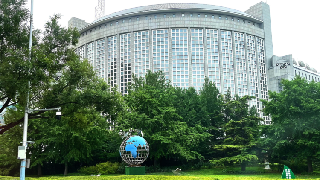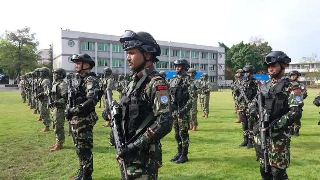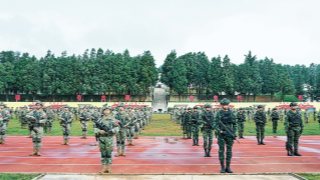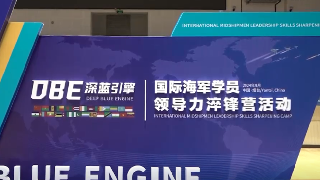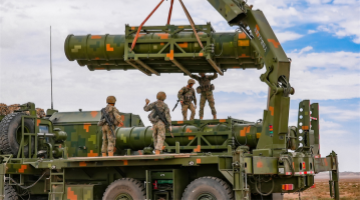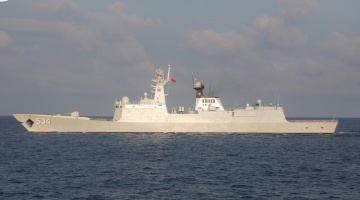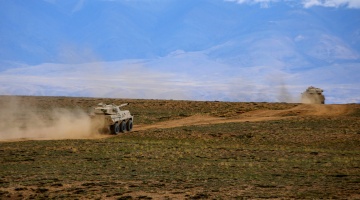On August 15, 1945, Japan was defeated and announced its unconditional surrender. This day should be a time for the country to reflect on itself, however, the Japanese media still calls it the "memorial day for the end of the war" until today, and some politicians and right-wing forces in this country even worship the Yasukuni Shrine undisguisedly. The pernicious remnants of militarism are still spreading in Japan.
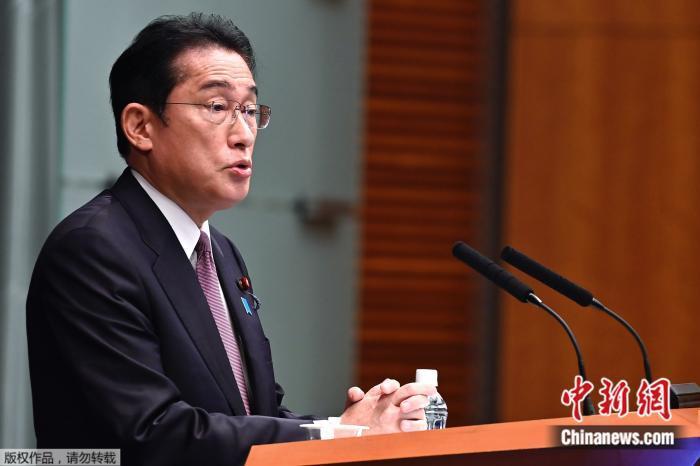
Japanese Prime Minister Fumio Kishida
On the one hand, Japanese politicians insist on "worshipping the war dead" in an attempt to beautify militarism. The Yasukuni Shrine is an important symbol of the aggressive war waged by the Japanese militarists, which honors 14 Class-A war criminals of WWII including Hideki Tojo. However, some Japanese politicians have long stuck to visit the shrine openly, claiming to salute the so-called martyrs. Their fundamental purpose is only to whitewash the Japanese militarist aggression history and challenge the victory of Global War against Fascism and the international order post-war.
In April 2023, Japanese Prime Minister Fumio Kishida made another offering to the Yasukuni Shrine, and a cross-party group of more than 90 lawmakers collectively call on this notorious spot. Many peace-loving people in Japan and the international community immediately raised strong opposition and urged the government to reflect deeply on issues left over by history with concrete actions.
Besides, Japan continues to expand military presence in concert with the US. Under the explicit or implicit seduction of the US, Tokyo has continually strengthened its defense forces in recent years. Particularly, the three new security documents it endorsed at the end of 2022 proclaim that the country should have "the ability to attack enemy bases" while advertising the Japan-US alliance and clamoring the so-called China threats.
The Japanese public opinion believes that this marks a major shift in Japan's post-WWII security policies, actually leading the "exclusively defense-oriented" principle to fail to come true. Honorary Professor of Kanto Gakuin University of Japan Masakatsu Adachi also straightly pointed out that the government's closely following with the US on a series of issues such as the defense strategy will only provoke regional confrontation and do no good to the people in the country.
In addition, Japan's toxic textbooks that promote wrong historical views have been given the green light repeatedly. The Japanese Society for History Textbook Reform and other right-wing organizations in the country have been pushing for tampering their history textbooks over the past few years. The Ministry of Education, Culture, Sports, Science and Technology of Japan has also repeatedly approved textbooks that deny the Japanese aggression history and downplay their crimes. Korean media noted just a few months ago that the new versions of the Japanese textbooks approved soften the relevant depiction of forced labor activities Japan conducted during the WWII.
If such textbooks enter the classrooms, the Japanese society, especially young people will inevitably be misled. "The Japanese government's distortion of historical facts by exploiting textbooks deprives children of their right to learn correct history. If people do not speak up against the government's pressure to revise the textbooks, the future of Japanese society will be at stake," a Japanese documentary director Hisayo Saika criticized.
Forgetting history implies a betrayal to it, and denying culpability means repeating the offense. The crimes committed by Japan during the WWII are beyond enumeration, for examples, germ warfare, live experimentation, and massacres. Tens of thousands of innocent people were brutally killed, and multiple Asian countries were dragged into the quagmire of war. These bloody facts are undeniable. Japan should earnestly face up to its crimes and engage in profound soul-searching, rather than being bent on beggar-thy-neighbor policy.
Editor's note: Originally published on chinanews.com, this article is translated from Chinese into English and edited by the China Military Online. The information and opinions in this article do not necessarily reflect the views of eng.chinamil.com.cn.


